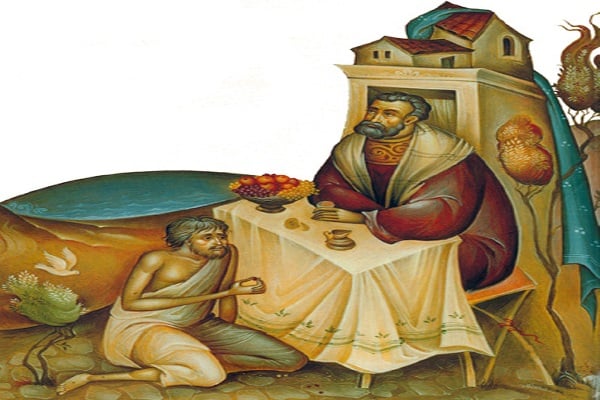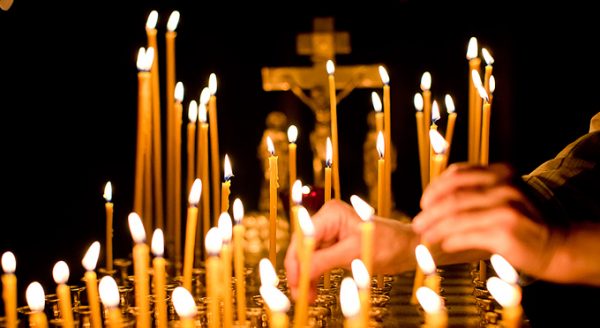You’re troubled because you don’t understand the meaning of the words you’ve heard so often and have said over the dead. You’ve done well to ask. The better we know our ancient and beautiful Orthodox faith, the more we love it.
‘Eternal memory’ means ‘May your memory be eternal for you’. I once heard a funeral address when someone said of the dead person: ‘May your memory be eternal on earth!’ I was taken aback by such an erroneous misinterpretation of our faith. How can anything be eternal on earth, when everyone’s hurrying on through, like guests at a wedding.

Really, aren’t we wishing the dead absolutely nothing of value at all if we hope they’ll be remembered in this world which is itself approaching its end. But let’s say that somebody’s name is, in fact, remembered on earth till the end of time. What good’s that to them if their remembrance has been forgotten in heaven?
The right thing is that we should want the name of the dead person to be commemorated forever in eternity, in life everlasting, in God’s kingdom. This is the meaning of the words ‘Eternal memory to you’
One time Christ’s disciples were boasting to their Master and saying: ‘Lord, even the demons are subject to us in your name’ (Luke 10, 17). The Lord told them not to be so pleased about that but: ‘Rejoice that your names have been written in heaven’ (10, 20). That is to say, they should rejoice that their names are known and will be remembered and commemorated in the heavenly kingdom of light and life.
In Holy Scripture, it often says that the names of the righteous will be written in the book of the living, whereas the names of sinners will be expunged and forgotten. From the story of the rich man and Lazarus, we know that the Lord says the name Lazarus explicitly, but makes no mention of the name of the rich man. He means to convey that Lazarus entered the Kingdom of Heaven, received eternal life and eternal remembrance; but the sinful rich man was deprived of the kingdom, life and name.
Theologically, the name is one and the same as the person. In the Revelation it says: ‘And on that day, a great earthquake occurred… and in the earthquake the names of seven thousand people died’*. By ‘earthquake’, we should understand great temptations, to which seven thousand people succumbed, apostatized and lost their soul. This means that it was not only their bodies which were destroyed- that’s of very little importance- but also their souls and names. In eternity their names have vanished and been expunged from the book of the living.
Those who desire immortal remembrance want something which is in accordance with the Gospel; if they want immortal remembrance on earth they desire a vacuous thing**. You should be aware that many people who have passed through this life quietly and without causing a stir have acquired an immortal name in the next. Think on this, Meletios, my brother, and the Lord will reveal much more to you. And when you hear of my own death, say in your prayers ‘Eternal memory to him’***.
Peace and love from the Lord.

















